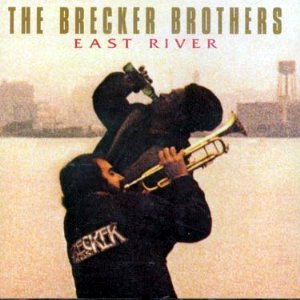
| Artist: | The Brecker Brothers |
| Title: | East River |
| Released: | 1997 |
| Label: | BMG Records |
| Time: | 70:22 |
| Producer(s): | See Artists ... |
| Appears with: | |
| Category: | Jazz |
| Rating: | ****..... (5/10) |
| Media type: | CD |
| Purchase date: | 2001.10.18 |
| Price in €: | 6,99 |
| Web address: | www.michaelbrecker.com |